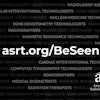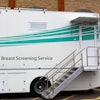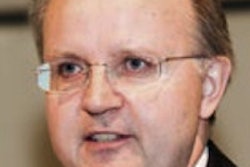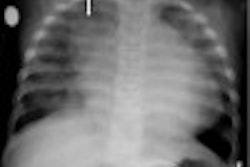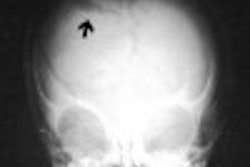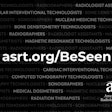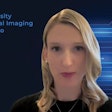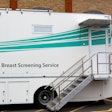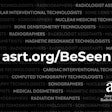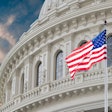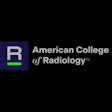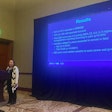A two-year-old process in which the American College of Radiology reviews allegations of improper expert testimony by members is gaining steam, with more complaints being filed and vetted.
The 10-member ACR Committee on Ethics met in closed sessions on April 17 to hear allegations involving two college members whose actions as expert witnesses in medical malpractice cases have been questioned.
The hearings covered complaints filed with the Reston, VA-based ACR in 2002 and 2003, according to attorney Thomas Hoffman, associate general counsel for the college and staff counsel for the committee.
In keeping with the confidential review process, Hoffman declined to reveal any other details about the complaints or the people involved.
Altogether, more than 10 complaints about allegedly improper expert testimony have been filed with the college, with the numbers increasing of late.
"The committee has received more complaints within the last year and even in the last six months," Hoffman said, though he declined to speculate on what may be fueling the increase.
Vetting the allegations is a lengthy process, he acknowledged, in part because the court documents and medical evidence in each case is sent first to an outside reviewer for clinical evaluation.
The ACR established a formal process for reviewing complaints about members' expert testimony only in 2002, after a federal appeals court stated that medical organizations should be monitoring such testimony (Austin v. American Association of Neurological Surgeons, 253 F.3d 967, 7th Circuit, 2001).
Dr. Donald C. Austin sued the neurosurgery group after his membership was suspended due to testimony he gave in a malpractice case. Austin claimed that the organization suspended him in "revenge" for testifying against another AANS member.
But the appeals court found that Austin's expert testimony had been "irresponsible" and "violated a number of sensible-seeming provisions of the Association's ethical code."
"Although Dr. Austin did not treat the malpractice plaintiff for whom he testified, his testimony at her trial was a type of medical service and if the quality of his testimony reflected the quality of his medical judgment, he is probably a poor physician. His discipline by the Association therefore served an important public policy," wrote Judge Richard Posner.
"[T]his kind of professional self-regulation rather furthers than impedes the cause of justice," Posner continued. "More policing of expert witnessing is required, not less."
Since establishing its procedures, the ACR ethics committee has held only one other hearing on allegedly improper testimony, in October 2003. In that case, the committee found no ethics violations by the unnamed ACR member.
The ACR Code of Ethics contains just one paragraph pertaining to expert testimony in particular.
It states: "In providing expert medical testimony, members should exercise extreme caution to ensure that the testimony provided is non-partisan, scientifically correct, and clinically accurate. The radiologist or radiation oncologist shall not accept compensation that is contingent upon the outcome of litigation" (2003-2004 ACR Bylaws, Article XIII, Section 2).
"If that ethical standard is violated, then remedial action is warranted," noted Dr. Leonard Berlin, a member of the ethics committee and chairman of radiology at Rush North Shore Medical Center in Skokie, IL. "The question is, was it violated or not?"
"We have to look at each individual case," Berlin continued in an interview with AuntMinnie.com. "Certainly a difference of opinion is not a violation of the ethics. So, one has to be very careful in making the distinction between a difference of opinion and a violation of the ethics and giving wrongful testimony."
Whatever decision the committee reaches in the pending cases will be announced via the ACR's Web site, in the society's e-news publication, and in the Journal of the American College of Radiology.
If exonerated, the members' names will remain confidential. Also, if a member is given only a written reprimand or censure, his or her name will not be disclosed, Hoffman said. Only if the committee decides on suspension or expulsion will the affected ACR member's name be revealed.
The committee's rules require only a majority decision in these cases. But Hoffman believes the committee would be inclined to reach a unanimous decision, "given the gravity of the allegations, and the fact that the decision may affect the member's standing in the radiology community."
By Tracie L. Thompson
AuntMinnie.com staff writer
April 27, 2004
Related Reading
'Threatening' article to mammo expert throws malpractice case into disarray, December 16, 2003
OB ultrasound still tops litigation list, November 12, 2003
Making mammographers better -- the last link in the imaging chain, August 29, 2003
Use of e-signatures requires awareness of legal ramifications, March 28, 2003
Copyright © 2004 AuntMinnie.com

